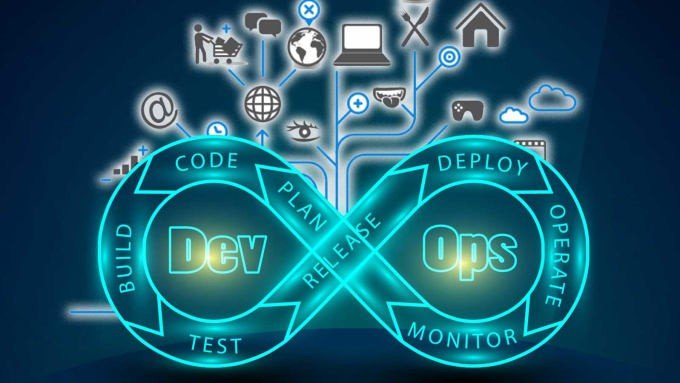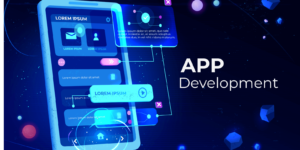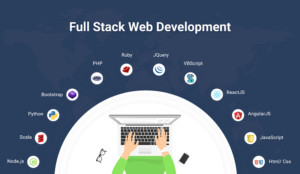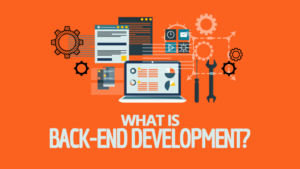Introduction
DevOps has revolutionized the tech industry by bridging the gap between development and operations. As a DevOps Engineer, you will streamline processes, automate workflows, and ensure seamless software deployment. This guide outlines the skills, tools, and roadmap needed to become a successful DevOps Engineer in just nine months.
What is DevOps?
DevOps is a combination of development and operations, focusing on:
- Collaboration: Bridging the gap between software developers and IT operations teams.
- Automation: Streamlining repetitive tasks like testing and deployment.
- Continuous Integration/Continuous Deployment (CI/CD): Rapid and reliable software delivery.
Why DevOps?
- High demand for DevOps skills in software teams.
- Competitive salaries: Average $100,000–$150,000/year.
- Opportunities to work on cutting-edge technologies like cloud computing, containerization, and microservices.
Skills Required to Become a DevOps Engineer
Core Competencies:
- Programming and Scripting:
- Python, Bash, or Go for automation.
- Knowledge of YAML for configuration files.
- Operating Systems:
- Proficiency in Linux (Ubuntu, CentOS).
- Basic Windows Server knowledge.
- Version Control:
- Expertise in Git and platforms like GitHub or GitLab.
- CI/CD Tools:
- Jenkins, GitLab CI/CD, or GitHub Actions.
- Infrastructure as Code (IaC):
- Tools like Terraform or CloudFormation for automating infrastructure setup.
- Containers and Orchestration:
- Docker for containerization.
- Kubernetes for managing containerized applications.
- Cloud Computing:
- Familiarity with AWS, Azure, or Google Cloud.
- Monitoring and Logging:
- Tools like Prometheus, Grafana, and ELK Stack.
Soft Skills:
- Strong problem-solving and analytical abilities.
- Effective communication for collaborating across teams.
- A mindset geared toward continuous learning and process improvement.
9-Month Roadmap to Becoming a DevOps Engineer
Month 1–2: Foundations
Goals: Learn the basics of DevOps principles, Linux, and version control.
- Understand DevOps Fundamentals:
- Learn key concepts: CI/CD, Agile, Infrastructure as Code, and Automation.
- Explore DevOps lifecycle stages: Plan, Develop, Build, Test, Release, Deploy, Operate, Monitor.
- Learn Linux Essentials:
- Shell commands, file permissions, and package management.
- Basic scripting with Bash.
- Version Control with Git:
- Branching, merging, resolving conflicts.
- Collaborating with GitHub or GitLab.
Hands-On Practice:
- Create a personal project repository on GitHub.
- Practice Linux commands in a virtual machine or cloud environment.
Month 3–4: Automation and CI/CD
Goals: Automate tasks and build a basic CI/CD pipeline.
- Learn Scripting Languages:
- Python or Bash for automating repetitive tasks.
- Write scripts for tasks like log parsing or file backup.
- Introduction to CI/CD Tools:
- Learn Jenkins, GitLab CI/CD, or GitHub Actions.
- Set up pipelines to automate code building and testing.
Projects to Build:
- Automate the deployment of a static website using a CI/CD pipeline.
- Integrate linting tools (e.g., ESLint) into your pipeline.
Month 5–6: Containerization and Orchestration
Goals: Learn Docker and Kubernetes for containerized applications.
- Containerization with Docker:
- Understand Docker architecture and commands.
- Build and run custom Docker images.
- Use Docker Compose for multi-container applications.
- Container Orchestration with Kubernetes:
- Deploy applications in a Kubernetes cluster.
- Learn about Pods, Deployments, Services, and ConfigMaps.
Projects to Build:
- Containerize a sample application (e.g., a Node.js app) using Docker.
- Deploy and manage it in a Kubernetes cluster (e.g., Minikube).
Month 7: Infrastructure as Code and Cloud Platforms
Goals: Automate infrastructure setup and deploy applications to the cloud.
- Infrastructure as Code (IaC):
- Learn Terraform or AWS CloudFormation.
- Automate the creation of resources like virtual machines and databases.
- Cloud Computing:
- Choose a cloud platform: AWS, Azure, or Google Cloud.
- Learn to deploy and manage resources like EC2 instances, S3 buckets, or App Services.
Projects to Build:
- Use Terraform to set up a cloud-based web server.
- Deploy an application to AWS Elastic Beanstalk.
Month 8: Monitoring and Security
Goals: Implement monitoring solutions and secure your deployments.
- Monitoring and Logging Tools:
- Learn Prometheus and Grafana for metrics and visualization.
- Use ELK Stack (Elasticsearch, Logstash, Kibana) for log management.
- DevOps Security:
- Set up secure CI/CD pipelines.
- Learn about network security, SSL/TLS, and IAM.
Projects to Build:
- Monitor server performance with Prometheus and Grafana.
- Create a secure CI/CD pipeline with role-based access.
Month 9: Advanced Topics and Portfolio Projects
Goals: Build complex projects and refine your portfolio.
- Advanced DevOps Topics:
- Configuration management tools: Ansible or Chef.
- Continuous Testing and Performance Optimization.
- Portfolio Projects:
- Deploy a microservices-based application using Kubernetes and Docker.
- Implement a disaster recovery solution on a cloud platform.
Recommended Resources
Books:
- “The Phoenix Project” by Gene Kim: An engaging introduction to DevOps principles.
- “Kubernetes Up & Running” by Kelsey Hightower: Master Kubernetes basics.
Online Courses:
- Google IT Automation with Python: Ideal for beginners.
- DevOps Bootcamp by Udemy: Comprehensive DevOps tools and practices.
- AWS Certified DevOps Engineer – Professional: AWS-specific skills.
YouTube Channels:
- TechWorld with Nana: DevOps tools explained in detail.
- Kunal Kushwaha: Great for cloud and DevOps beginners.
Tools Every DevOps Engineer Should Know
- Version Control: Git, GitHub, GitLab.
- CI/CD: Jenkins, GitHub Actions, GitLab CI/CD.
- Containers: Docker.
- Orchestration: Kubernetes.
- IaC: Terraform, CloudFormation.
- Monitoring: Prometheus, Grafana, ELK Stack.
- Cloud Platforms: AWS, Azure, Google Cloud.
Conclusion
DevOps is a highly rewarding career with endless opportunities for growth. By following this nine-month roadmap, mastering the tools, and working on real-world projects, you’ll be ready to step into the role of a DevOps Engineer confidently.
Ready to start your DevOps journey? Let us know in the comments or contact us for additional resources!




